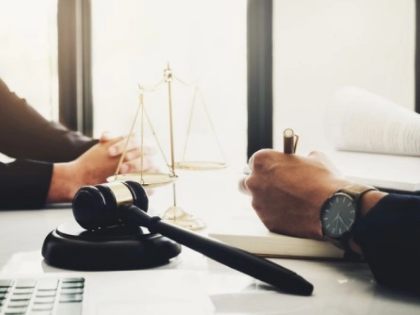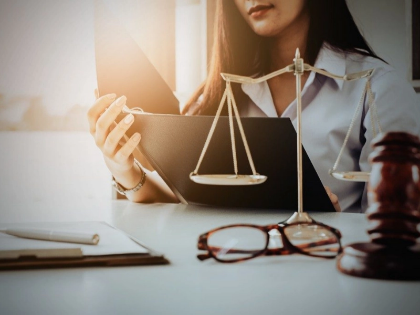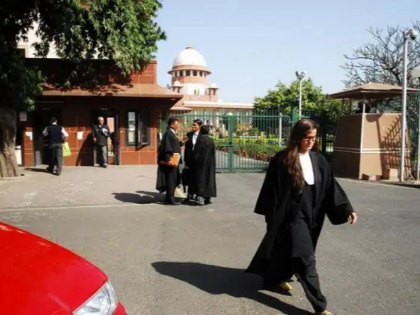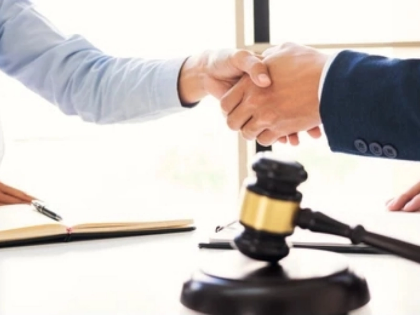Getting Justice After an Injury: Making Sure You Have Legal Counsel
Having medical evidence of an injury might significantly impact your case in court. It can serve as proof, support medical care, avert conflicts, and guarantee you get the money you're due. Throughout your case, a personal injury lawyer can help you navigate the convoluted legal system and obtain just compensation by providing advice and support. To improve your case, a sympathetic legal team prioritizes openness, planning, promptness, and communication.
1. Court representation

2. Expertise in Litigation
 Navigating the judicial system demands a broad range of abilities due to its complexity. A wounded party needs to have faith that their lawyer will fight for their rights and bring about the best result for their case. Strong communication, analytical and critical thinking, legal knowledge and research, negotiation, and time management are a few of these competencies.
Litigation attorneys need to have excellent interpersonal and communication skills because they frequently interact with a lot of people in an office setting, including clients and witnesses. In order to adhere to the court's stringent deadlines, they must also be organized.
It's critical for litigation lawyers to be current on new laws, case law, and established legal guidelines in their field of expertise. This makes it possible for them to give their clients precise advice and create a winning plan based on previous successes. This is the reason why having strong legal research abilities is essential for litigators. They should also be adept at utilizing the tools—particularly the technological ones—that aid in the conflict settlement process.
Navigating the judicial system demands a broad range of abilities due to its complexity. A wounded party needs to have faith that their lawyer will fight for their rights and bring about the best result for their case. Strong communication, analytical and critical thinking, legal knowledge and research, negotiation, and time management are a few of these competencies.
Litigation attorneys need to have excellent interpersonal and communication skills because they frequently interact with a lot of people in an office setting, including clients and witnesses. In order to adhere to the court's stringent deadlines, they must also be organized.
It's critical for litigation lawyers to be current on new laws, case law, and established legal guidelines in their field of expertise. This makes it possible for them to give their clients precise advice and create a winning plan based on previous successes. This is the reason why having strong legal research abilities is essential for litigators. They should also be adept at utilizing the tools—particularly the technological ones—that aid in the conflict settlement process.
3. Experience
 Your injuries might have long-lasting effects, ranging from managing chronic pain to overcoming financial obstacles. A skilled legal firm can offer a sympathetic approach and understand the complete impact of your injury.
A burgeoning trend aims to introduce empirical research into the realm of justice access. A range of indicators are used by researchers to monitor their success. These comprise both more specialized instruments that measure components of the supply side of justice (i.e., laws and institutions that deliver justice services) and the demand side of justice (i.e., the intended beneficiaries of those services), as well as broad indices and "baskets" of indicators that attempt to aggregate various concepts.
A skilled lawyer can assist you in holding careless persons responsible for their deeds by fighting for recompense that meets your demands. Additionally, a lawsuit acts as a warning that carelessness will not be accepted. It can also bring you closure so you can put your injuries behind you and move on.
Your injuries might have long-lasting effects, ranging from managing chronic pain to overcoming financial obstacles. A skilled legal firm can offer a sympathetic approach and understand the complete impact of your injury.
A burgeoning trend aims to introduce empirical research into the realm of justice access. A range of indicators are used by researchers to monitor their success. These comprise both more specialized instruments that measure components of the supply side of justice (i.e., laws and institutions that deliver justice services) and the demand side of justice (i.e., the intended beneficiaries of those services), as well as broad indices and "baskets" of indicators that attempt to aggregate various concepts.
A skilled lawyer can assist you in holding careless persons responsible for their deeds by fighting for recompense that meets your demands. Additionally, a lawsuit acts as a warning that carelessness will not be accepted. It can also bring you closure so you can put your injuries behind you and move on.
4. Resource access
 It's crucial to have legal counsel to help you understand the convoluted legal system and make connections with pertinent organizations and resources. However, that's not the whole story. A growing body of work is being done to bring empirical research into the field of access to justice. Some of the initiatives that are being considered include cost-benefit analyses, racial justice visions, increased attention to evaluative studies like NCAJ's Justice Index and court data collection, a comprehensive approach that includes expanded rights to counsel and self-representation options, and a fundamental reevaluation of laws that prohibit the unlicensed practice of law.
Governments, international organizations, and civil society are more focused on the supply side of justice—laws, institutions, mechanisms, and procedures—than on the demand side, which is made up of people who utilize or benefit from justice, as shown by a mapping of the indicators now in use. Indicators that are specific to gender are likewise lacking. Gender-specific data on important demand-side factors, like general and legal literacy and awareness, could help improve and fine-tune initiatives aimed at enhancing women's access to justice.
It's crucial to have legal counsel to help you understand the convoluted legal system and make connections with pertinent organizations and resources. However, that's not the whole story. A growing body of work is being done to bring empirical research into the field of access to justice. Some of the initiatives that are being considered include cost-benefit analyses, racial justice visions, increased attention to evaluative studies like NCAJ's Justice Index and court data collection, a comprehensive approach that includes expanded rights to counsel and self-representation options, and a fundamental reevaluation of laws that prohibit the unlicensed practice of law.
Governments, international organizations, and civil society are more focused on the supply side of justice—laws, institutions, mechanisms, and procedures—than on the demand side, which is made up of people who utilize or benefit from justice, as shown by a mapping of the indicators now in use. Indicators that are specific to gender are likewise lacking. Gender-specific data on important demand-side factors, like general and legal literacy and awareness, could help improve and fine-tune initiatives aimed at enhancing women's access to justice.








